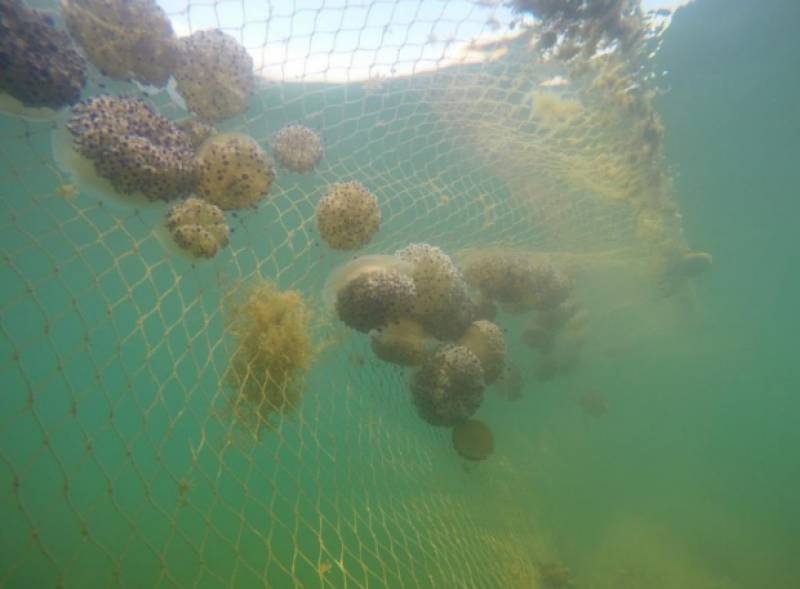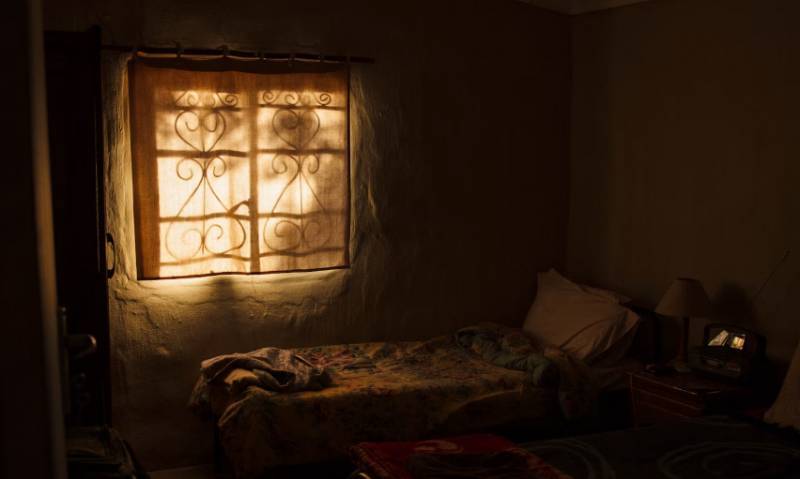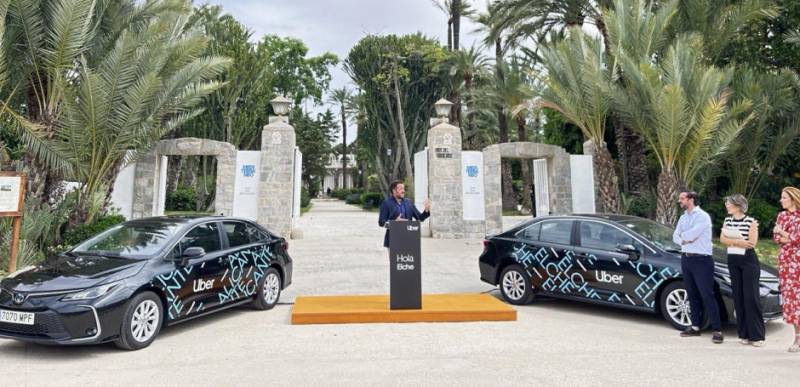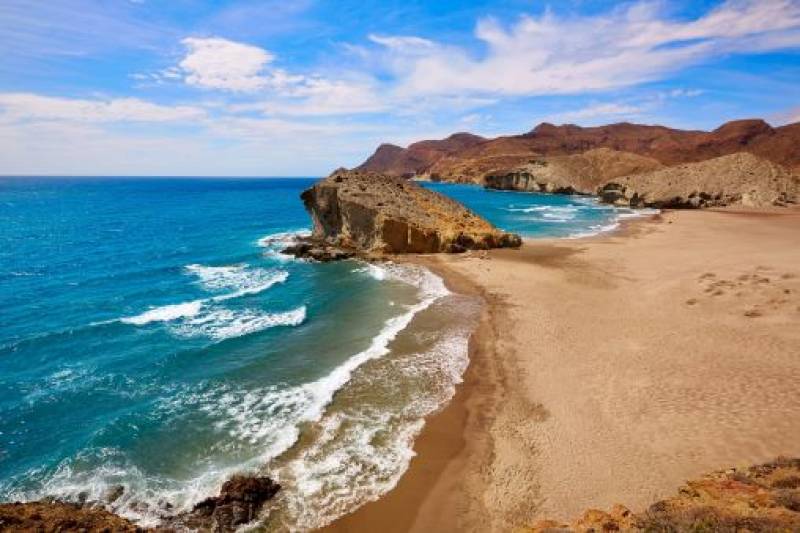Spanish News Today Editors Roundup Weekly Bulletin June 28
TOP STORIES: "Mercadona will now open on Sundays" & "Murcia to become centre of European film industry"
The group stage of the Euros is done, and now we move into the round of 16. Both Spain and England are through, and are playing this weekend (not each other… yet!), as are Germany and Denmark. France v Belgium should be exciting on Monday while the Netherlands also have a chance of meeting Spain in the final.
An important political development in Spain this week, too. It’s a problem we haven’t made much of in the past due to the obscure nature of the issue, but the ruling body for all the courts of law in Spain has been in deadlock for 5 years due to party political leaders being voted into the Council. Now, finally, after pushing Spain’s institutional democracy to the limit, the PSOE and PP parties have agreed in principle to depoliticise the Supreme Court, using legal professionals instead of politicians, something that seems like it would be common sense but has taken until now to prevail.
Onto our main stories of the week, including the latest on Jay Slater, Mercadona’s summer opening times, new regulations for e-scooters and plastic bottles, plus an exciting development that should put the Region of Murcia on the world stage…
The search for Jay Slater continues

The disappearance of 19-year-old Jay Slater has entered its second week, with
Spanish authorities ramping up their efforts to find the young Briton. Jay was last seen leaving an AirBnb in the Tenerife village of Masca the morning after attending the New Rave Generation music gig.
As concerns grow, Spanish authorities have kicked their efforts up a gear and have called in the big guns: a specialised search and rescue unit from Madrid, complete with highly-skilled sniffer dogs.
A statement from the Tenerife police on Tuesday June 25 said that several Canine Guides of the Guardia Civil have now been dispatched from Madrid with dogs “specialised in the search for people on large areas of land”.
Despite the extensive efforts, including aerial units scanning from above, there have been very few leads. Grainy CCTV footage emerged, showing a young man matching Jay’s description walking through Santiago de Tiete just hours after he vanished. However, it is unclear if this is indeed Jay. The Guardia Civil has insisted that their efforts are not being scaled back, despite media speculation and conspiracy theories circulating online.
In a bizarre twist, the Tenerife police, while searching the remote countryside near where Jay disappeared,
stumbled upon another missing person, a 51-year-old Scottish hiker. The man had become lost in the enormous Rural de Teno National Park and was found exhausted and disoriented. He had been hiking a challenging route not recommended for walkers.
The disappearance of Jay Slater remains a mystery, and the Guardia Civil is determined to uncover what happened. But as the days turn into weeks, the mystery of Jay’s whereabouts deepens. The authorities continue to appeal for information, and Jay’s family remains hopeful for his safe return.
Mercadona announces new summer opening hours
Now, the whole Sunday opening hours debate is a bit of a tricky subject here in Spain. Some folks firmly believe that staff deserve this weekend day off all year round. After all, everyone needs a break, right? While others find it a tad annoying, especially when you’ve just landed and there’s not even a bottle of water in the fridge or a teabag in the cupboard.
Regardless of which side of the fence you’re on, Mercadona is about to become a little more flexible.
Most larger shops and supermarkets in touristy areas already embrace the seven-day work week during the summer, but until now Mercadona has resisted except in a few select towns on the Costa del Sol. Now, though, they’ve bowed to the pressure and following in the footsteps of supermarket rivals like Alcampo, Carrefour and El Corte Inglés, Mercadona is taking the plunge into Sunday and holiday trading during the summer months.
Starting from Sunday June 30, around 340 stores in popular tourist towns will welcome shoppers from 9am to 3pm. That’s right, you can grab your beach snacks and picnic goodies on a lazy Sunday morning.
Also, as of this Monday just gone, they’ll be keeping their doors open from 9am to 10pm from Monday to Saturday, giving you an extra 30 minutes to grab those last-minute essentials or treats.
It’s worth noting that not all Mercadona stores will be joining the Sunday club, so be sure to
check their website to see if your local store is among the “high-traffic” crew. This revised schedule kicks off a summer of convenience and will run until September, giving you plenty of time to enjoy those longer shopping days.
Keep it bottled up
Speaking of the shops, if you’ve taken a stroll around any Spanish supermarket in the last few months you’ll have noticed that an awful lot of bottles now have stuck-on caps. You know the ones – the lid twists off so you can take a swig but it remains attached by a thread of plastic?
You’d be forgiven for thinking the first few times that this was a manufacturing flaw, but there’s actually method behind the madness and Spain was actually just getting out of front of a Europe-wide law that’s set to come into force on July 3.
So from next week, all plastic bottles for beverages of up to three litres in capacity will
have to have non-removable caps. The idea is that the new design will reduce the amount of plastic waste accidentally left in the environment and it makes sense – how many times have you seen the caps of cola bottles discarded in the gutters?
It’s estimated that an incredible 6% of waste found on European beaches consists of plastic bottle tops, and this new regulation aims to reduce the risk of cap loss by almost half.
Since their inception, these new bottles have sparked plenty of debate.
Social media has been flooded with funny memes of thirsty individuals catching their lips or even noses on the fixed caps, and many people have griped about spilling their delicious beverages since the bottle tops have an annoying habit of twisting. But love them or loathe them, these caps are here to stay and will soon be donning every drink imaginable from milk to lemonade.
And despite the very mixed feelings about the cap design, when presented with the rationale behind this change, 26% of respondents in consumer surveys changed their minds and accepted the new concept.
Spain is introducing new laws for electric scooters
Sticking with every fun-lover’s favourite topic of rules and regulations, this latest little bit of legislation is bound to tickle the fancy of many pedestrians and drivers in Spain. After more than three years of paper shuffling, the General Directorate of Traffic (DGT) is finally ready to present a comprehensive legal framework for electric scooters, which will establish
rules for riders that have to be followed everywhere in the country.
We already know that the Spanish government plans to make insurance mandatory for all these so-called ‘personal mobility vehicles’ somewhere around 2026, but the new guidelines, which still have to be approved, have thrown a few curve balls.
One of the biggest changes is that the DGT wants to ban anyone under the age of 16 from riding electric scooters, which seems reasonable since these devices can reach 25 kilometres per hour (and the illegally doctored ones go much faster), and frequently travel on public roads alongside other vehicles.
But the decision is bound to face some serious backlash.
Another of the new aspects of the legislation is that the blood alcohol levels for novice and professional drivers will drop to 0.20 grams per litre of blood alcohol (the limit is now 0.30) or 0.15 milligrams per litre of exhaled air (0.10 currently). And while the traffic authorities won’t be able to deduct any points from driving licences, the fines for scooting while under the influence will likely carry the same monetary fines as drink driving.
The reform also states that personal mobility vehicles, which includes scooters, will only be allowed in urban areas, and that each device must carry “at least” one “luminous or retroreflective element”; in other words, they’ll need lights at night.
The Spanish government hasn’t yet indicated when these rules come into play but once they do, they will supersede any regulations currently enforced by the individual town and city halls.
Murcia

On the beaches of Murcia, the regional government is taking proactive measures to ensure safety for bathers this summer by installing
anti-jellyfish nets in specific areas of the Mar Menor, trying to balance protection for swimmers with the preservation of the animals and the lagoon’s ecosystem.
They have assured that, this year, the nets will be strategically placed with “almost surgical” precision in the areas where jellyfish presence has been problematic, ensuring minimal environmental impact.
That means the nets will probably be focused in areas like the northern basin of the Mar Menor, Veneziola, and the inner shores of San Pedro del Pinatar and Los Nietos. They will be regularly maintained, says the government, to prevent seahorses from becoming entangled and pockets of jellyfish from disrupting swimming areas.
Only 40 linear kilometres of nets will be installed, as jellyfish play a crucial role in the ecosystem’s nutrient regulation.
A recent meeting of the Government’s Scientific Advisory Committee actually indicated that oxygen levels in the Mar Menor are stable, with chlorophyll and turbidity levels suggesting excellent water transparency despite the nutrient influx from torrential rains.
Simultaneously, the Region of Murcia government is promoting smoke-free beaches to improve public health and to combat the environmental impact of cigarette butts, which can take up to 25 years to degrade and release harmful chemicals into the sea.
Current legislation does not outright ban smoking on beaches, although smoking is prohibited in other outdoor spaces like playgrounds and near health centres.
If you fancy being assured of a smoke-free experience on the beach in Murcia this summer, you can go to any of the 13 beaches spread across six municipalities – Mazarrón, San Javier, Los Alcázares, Cartagena, San Pedro del Pinatar and Águilas.
The project, which has a total budget of 687,868.33 euros, aims to improve mobility for people with reduced mobility, the elderly and families, providing a safer and more comfortable environment.
The problem, as it stands, is that accessibility between Avenida Narciso Yepes and Calle Viriato is currently very difficult due to the steep slope and limited access points. Once the lift is installed, it will greatly improve not only accessibility but also pedestrian journey times from one area to another.
Even better, it has a glass front for a panoramic experience, offering great views out over the Mediterranean.
This startling news comes courtesy of a British company, Stage Fifty, which is working in partnership with Universal to build what will be known as ‘Murcia Film Studios’.
The project, which has an initial investment of 120 million euros, will involve the creation of a studio spanning 100,000 square metres that is estimated to generate around 1,000 jobs and attract top-level national and international productions to be filmed and produced in Murcia.
Located in the Los Cármenes de Las Torres industrial estate, the studio aims to leverage the region’s unique locations and temperate climate, while innovative subsidies will be offered to attract international teams and train local talent.
So don’t be surprised if you soon start seeing A-listers swanning around the Thader shopping centre. Tom Hardy was already around in Cartagena not long ago for the shooting of one of his Venom movies, remember?
Away from Hollywood, though, and focusing on the Spanish film industry, the project aims to bring specialised knowledge in areas like special effects, props, costumes, makeup and visual effects and to complement existing production centres, such as the City of Light in Alicante.
Far-fetched as it may seem, this development could actually position the humble Region of Murcia as a cinematic powerhouse in Europe!
Lights, camera, action!
As always, you can see our EVENTS DIARY for ideas of what to do in the Region of Murcia:
Spain
It seems like one or other of the airlines is always in trouble with the authorities for misbehaving, doesn’t it? The latest incident involves Spanish carrier Vueling, which landed itself in hot water last year for insisting its female flight attendants wear make-up and heels to work.
The events unfolded at Palma Airport in Mallorca back in 2019 as the woman was about to board a Vueling flight to Barcelona. A handling crew member informed her that she would not be permitted to fly due to her clothing, which consisted of a low-cut bodysuit that revealed her cleavage. Despite pleas from fellow passengers to let her on board, the airline stood firm, leaving the woman stranded… and understandably mortified!
Consumer rights group Facua argued – and ultimately proved - that the airline’s actions were discriminatory and sexist, violating the passenger’s rights by leaving her “completely defenceless in front of other travellers.”
Spain has long been grappling with a growing trend of squatting, leaving property owners feeling vulnerable and frustrated. The complex legal system and lengthy eviction process have often favoured the ‘okupas’, as they are called, leaving homeowners in a state of limbo. But a new twist in this ongoing saga has everyone scratching their heads:
squatters being squatted from.
These days, it’s not just landlords finding themselves in legal limbo, and a bizarre dynamic has developed where original illegal occupiers find themselves displaced by new squatters.
A recent incident in Palma de Mallorca left residents in shock. A woman, illegally occupying a house, returned from work to find a couple had moved into the same property. The new squatters had paid 1,000 euros to an individual who assured them the house was empty.
Here’s where the story takes an even more unexpected turn. The original squatter, well within her legal rights, apparently, called the Local Police to complain about the new occupants. True to form, the officers evicted the interlopers, and the original squatter regained possession of the property. The displaced couple provided the name of the individual they had paid, leading to potential fraud charges for them.
The original homeowner, meanwhile, was still not allowed to return to their house as the squatter’s rights trumped their property rights.
The legal system in Spain has long been criticised for its handling of squatting cases. While it is technically illegal to occupy someone else’s property without their consent, the eviction process is cumbersome and time-consuming at the very least, leaving homeowners stressed, out of pocket and feeling justifiably hard-done-by.
Nice of her to pay her money for the scissors first instead of using an implement that wasn’t hers. It is not currently known why she stabbed herself, but the wound it left was so severe that an ambulance at the airport rushed her to A&E at the Can Misses Hospital in Ibiza, where she was admitted to the ICU.
Alicante
Each summer, complaints abound about the shortage of taxis at Alicante-Elche Airport. This year is no exception, with queues over a hundred people deep and illegal cabbies taking advantage of the situation. The problem seems to be more acute in the evenings, leaving passengers exhausted and frustrated after their flights.
On Wednesday June 26, thirty Uber cars joined the fleet of licensed cabs at the airport, and just a day later, Aena (Spain’s airport management company) gave the green light for licenses to nine Cabify drivers.
But before we get too excited about these numbers, there’s a catch. Only four will operate in Alicante – the other five will be stationed at Valencia Airport.
Together, Uber and Cabify will add 34 new taxis to the currently 204-strong Alicante fleet.
According to Cabify’s projections, during the summer of 2024, trips made through the app to both airports will increase by an average of 25%. This increase reflects, according to the company, the interest of users in sustainable mobility alternatives in Valencia and Alicante, where an increase in tourism is expected in both cities this year.
And while there’s no doubt that the average holidaymaker or business person on a work trip is concerned with the environment, it’s safe to assume they’re more worried about standing in a queue outside the airport for an hour after their flight has landed, waiting for a taxi.
So, the next time you touch down at Alicante Airport, you may just find yourself hopping into an Uber or Cabify ride, reducing your wait time and providing a seamless start or end to your journey. It’s a welcome development that addresses a long-standing issue at one of Spain’s busiest airports.
Happy travels, and may your travel woes be a thing of the past.
Ms Warren, a naturalised British citizen, had made Spain her home with her UK-born husband, John. In May 2022, she was brutally stabbed and shot at her home in Elche. Spanish police swiftly arrested the accused: a 46-year-old woman and her then 16-year-old son.
Youth court prosecutors sought an eight-year custodial sentence for the teenager if he was found guilty. He was accused of helping his mother move Ms Warren’s body after the grisly killing. Investigators zeroed in on the suspects after the mother’s car caught fire in Alicante shortly after the murder, leading to their arrest.
But as fate would have it, the accused teenager met his demise in a car accident. The investigation into the British woman’s murder will continue, with the mother expected to stand trial separately after the summer.
The case leaves a trail of unanswered questions and a sense of tragedy for all involved.
An international manhunt that spanned more than a decade came to a close this week with the
capture of a 64-year-old fugitive in Orihuela. The man, a Bulgarian national, was wanted by German authorities for sexual abuse, coercion and rape committed against the young daughter of friends.
Hiding in plain sight on the Costa Blanca, the suspect sought to avoid serving a 10-year prison sentence back in Germany.
The Spanish portion of the saga began with a European Arrest Warrant issued by German authorities for crimes committed between August 2010 and February 2012 in Wuppertal, Germany.
Suspecting that the man may have settled on the sunny shores of the Costa Blanca, the National Police in Alicante launched a widespread search. Their persistence paid off, and the suspect was finally apprehended in Orihuela earlier this week.
The detainee has been handed over to the Central Court of Instruction of the National Court, which will oversee the extradition process back to Germany.
Andalucía
All of the eight Andalusian provinces – Cádiz, Huelva, Málaga, Sevilla, Córdoba, Granada, Almería and Jaén – have their own capital city, handily named exactly the same as the province itself. You would think that the most touristy ones would be Málaga or Seville, or maybe even Córdoba or Granada with their beautiful old towns, but it turns out that Cádiz is in the top spot. And there are some locals who are none too happy about it.
Newly formed citizens’ rights group Cádiz Resiste is alleging that, like other places in Spain, the proliferation of tourist rental apartments is putting pressure on the long-term rental housing market.
Of the 1,500 tourist apartments in Cádiz, 10% are managed by companies, 6% by foreign residents, and 82% by private Spanish individuals.
Cádiz Resiste is calling for a moratorium on new licences being granted to tourist flats, an increase in waste collection and property tax, and a crackdown on illegal rental activities. They have organised a public demonstration this Saturday to pressurise public administrations to take action on this matter.
On the beaches of the Costa del Sol, the town of Vélez-Málaga has introduced a unique solution to a shortage of human lifeguards:
doggy David Hasselhoffs. Yes, this summer, six dogs from the MresQ Canine Rescue and Emergency Unit – Queen, Oso, Mai, Brown, Nancy and Buddy – will patrol Vélez-Málaga’s beaches, ensuring safety for beachgoers.
These dogs, aged one to seven, are a mix of Newfoundland and Labrador Retrievers, breeds known for their exceptional swimming abilities and keen senses. They are stationed at the Torre del Mar dog beach, impressing visitors with their friendly nature and skills.
The dogs are trained in water rescue and possess a keen sense of smell, making them ideal for search and rescue operations where human visibility might be limited. They wear special life jackets and work alongside human lifeguards to ensure safety.
Finally, we move further east along the coast to the Cabo de Gata-Níjar Natural Park in Almería, a protected stretch of coastline known for its pristine, wild beaches. Lovely for a visit this summer…
if you can, that is.
To conserve this natural beauty, the Andalusian Regional Government has implemented entry fees for parking at certain Cabo de Gata beaches during the summer months, from June 21 to September 22. The fees aim to preserve the ecological, geological and scenic value of the park.
Specifically, the five beaches with paid parking are Playa del Barronal, Playa de Mónsul, Playa de la Media Luna, Cala Carbón, and Playa de los Genoveses. The parking fee is 6 euros per car, and access is allowed only if there are free spaces.
Additionally, there are restrictions on the number of non-motorised sea vehicles, like canoes and kayaks, allowed on all beaches in the Natural Park during summer to protect the marine ecosystem.
The idea of all these measures is to ensure the continued protection of the Natural Park, and it seems to be working. Almería is one of the few parts of the Spanish Mediterranean coast (excepting, perhaps, Castellón de la Plana) that remains relatively untouched by the rush of tourists (Spanish as well as foreign) each summer.
Time will tell if that remains the case after the arrival of the AVE to Almería city, bringing more tourists to the province from Madrid and likely bringing with it increased investment in hotels, more flights to Almería Airport and other measures which could possibly jeopardise Almería’s wild, natural beauty.
You may have missed…
- Bargain Renfe summer trips around Spain from just 7 euros if you buy before July 1.
To celebrate the arrival of summer, Spain’s main railway company Renfe has launched another of its hugely popular ‘Superprecios’ or ‘Super Price’ mega sales. Passengers who jump online and purchase a ticket before July 1 will find cheap train trips across Spain for as little as 7 euros each way. The discounts are valid for travel between July 22 and September 8.
- What happens if you die without a will in Spain?
Dying without a will can lead to significant complications, especially in a foreign country like Spain, where inheritance laws may differ considerably from those in your home country. Understanding these implications is crucial for anyone residing in Spain or holding assets here.
- How to make sure your Spanish beach house is safe from damp.
Living by the coast has its perks, but it also comes with a unique challenge: managing humidity. This is especially true for apartments that remain closed for most of the year, only opening their doors during the holiday season. To keep your Spanish casa in tip-top shape, try some of these handy tips.
- Spain cracks down on social media warnings about traffic checkpoints.
The traffic authorities in Spain want to fine anyone who discloses the location of alcohol and drug police checkpoints.
- The best luxury rooftop bars to visit in the Region of Murcia.
Unmissable — the 6 best luxury rooftop bars to visit in the Region of Murcia!
There we go then, that’s your Editor’s Roundup Weekly Bulletin for this week. Thank you for reading and stay tuned for next week’s!
’Til then!




 The disappearance of 19-year-old Jay Slater has entered its second week, with Spanish authorities ramping up their efforts to find the young Briton. Jay was last seen leaving an AirBnb in the Tenerife village of Masca the morning after attending the New Rave Generation music gig.
The disappearance of 19-year-old Jay Slater has entered its second week, with Spanish authorities ramping up their efforts to find the young Briton. Jay was last seen leaving an AirBnb in the Tenerife village of Masca the morning after attending the New Rave Generation music gig.


 On the beaches of Murcia, the regional government is taking proactive measures to ensure safety for bathers this summer by installing anti-jellyfish nets in specific areas of the Mar Menor, trying to balance protection for swimmers with the preservation of the animals and the lagoon’s ecosystem.
On the beaches of Murcia, the regional government is taking proactive measures to ensure safety for bathers this summer by installing anti-jellyfish nets in specific areas of the Mar Menor, trying to balance protection for swimmers with the preservation of the animals and the lagoon’s ecosystem. In another initiative to improve local infrastructure, Mazarrón Town Hall has announced the start of the contracting process for installing an elevator and enhancing accessibility in the Paseo del Peñasco in Puerto de Mazarrón.
In another initiative to improve local infrastructure, Mazarrón Town Hall has announced the start of the contracting process for installing an elevator and enhancing accessibility in the Paseo del Peñasco in Puerto de Mazarrón.

























